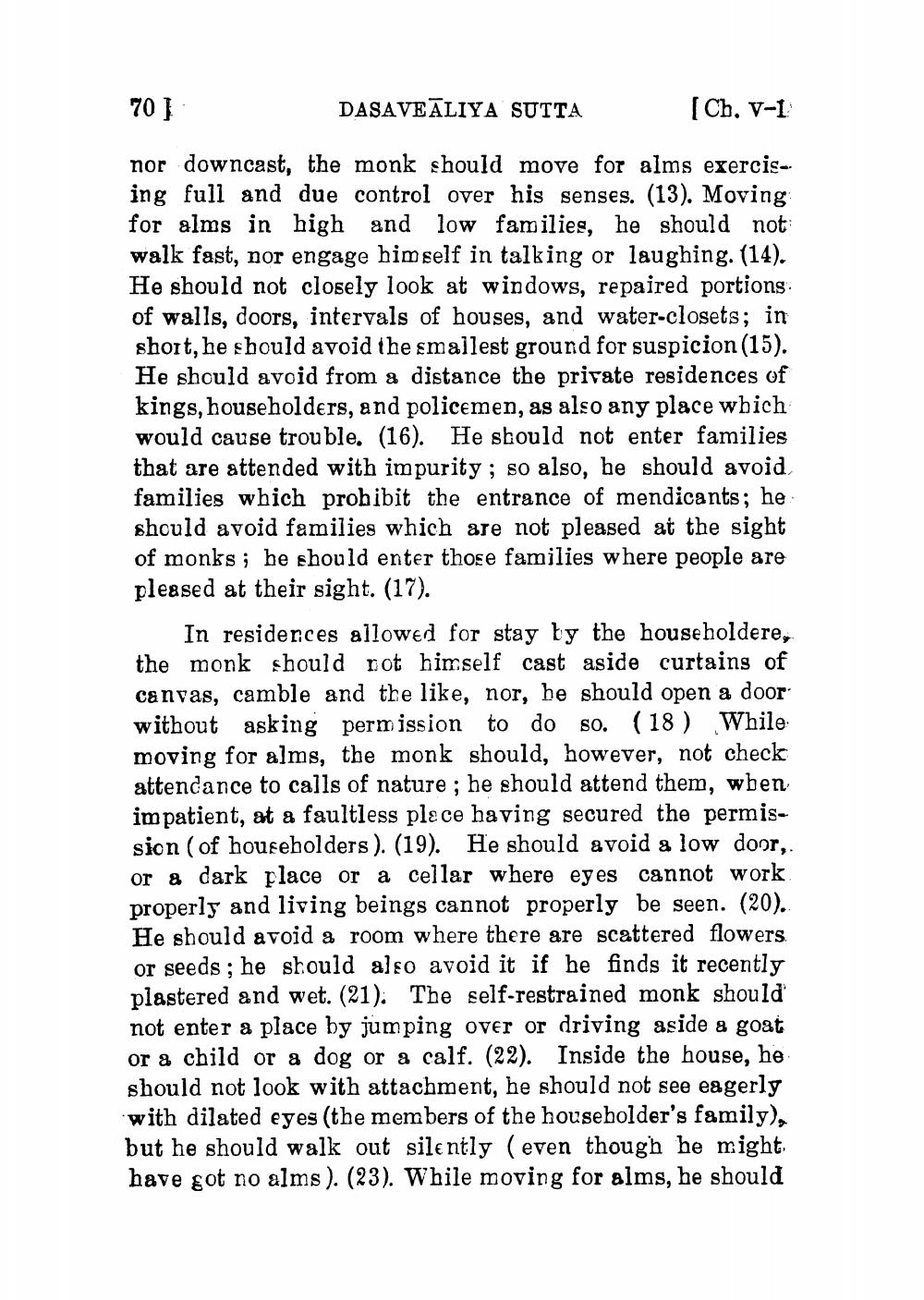________________
70 ]
DASAVEĀLIYA SUTTA
(Ch. V-1
nor downcast, the monk should move for alms exercising full and due control over his senses. (13). Moving for alms in high and low families, he should not walk fast, nor engage himself in talking or laughing. (14). He should not closely look at windows, repaired portions of walls, doors, intervals of houses, and water-closets; in short, he should avoid the smallest ground for suspicion (15). He should avoid from a distance the private residences of kings, householders, and policemen, as also any place which would cause trouble. (16). He should not enter families that are attended with impurity; so also, he should avoid families which probibit the entrance of mendicants; he should avoid families which are not pleased at the sight of monks; he should enter those families where people are pleased at their sight. (17).
In residences allowed for stay by the householdere, the monk should not himself cast aside curtains of canvas, camble and the like, nor, he should open a door without asking permission to do so. (18) While: moving for alms, the monk should, however, not check attendance to calls of nature ; he should attend them, when impatient, at a faultless place having secured the permission (of houreholders). (19). He should avoid a low door, or & dark place or a cellar where eyes cannot work properly and living beings cannot properly be seen. (20). He should avoid a room where there are scattered flowers or seeds; he should also avoid it if he finds it recently plastered and wet. (21). The self-restrained monk should not enter a place hy jumping over or driving aside a goat or a child or a dog or a calf. (22). Inside the house, he should not look with attachment, he should not see eagerly with dilated eyes (the members of the householder's family), but he should walk out silently (even though he might, have got no alms). (23). While moving for alms, he should




